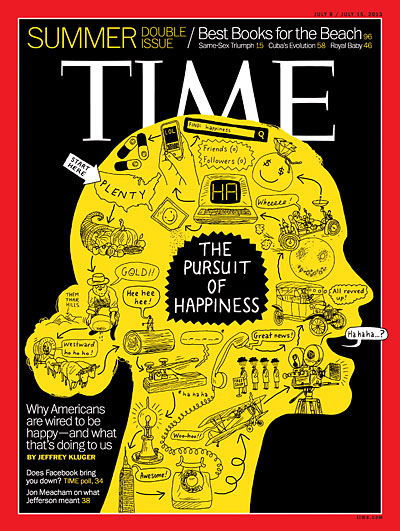

This course provides a historical examination of key concepts, major questions, and practices about humanity’s search for happiness from the Hellenistic-Roman period of Antiquity through the Early Christian and Medieval periods. The content of the course centers on the role of Classical moral philosophy and Early Christian theology in the formulation of eudaemonic theories about the purpose of human life and the problem of happiness in the history of Christianity.
In contemporary culture, and especially after the 2008 global financial meltdown and the ensuing Great Recession, reflection and concern about this ancient philosophical and religious problem has resurfaced with widespread intensity across all sectors of society, including among leadership and organizational development training programs, economics and psychology, spirituality programs, and the myriad of books, videos and retreat programs being marketed by the so-called "self-help" industry.
Books for the Course:
Aristotle, Nichomachean Ethics. Second Edition. Terence Irwin, Trans. Hackett Publishing, 1999. ISBN: 978-0872204642; PRICE RANGE: $3.00 to $15.00.
( NOTE-WELL : Any edition of these particular sections of Aristotle’s Ethics on Happiness and Virtue will be fine for your reading and our class discussions, including versions of this text available online.)
Thomas Aquinas. Treatise on Happiness. John A. Oesterle, Trans. University of Notre Dame Press, 1991. ISBN: 978-268018499; PRICE RANGE: $2.00 to $19.00.
( NOTE-WELL : Any edition of this particular section of Aquinas’ Summa Theologiae will be fine for your reading and our class discussions, including versions of this text available online.)
R. W. Sharples, Stoics, Epicureans and Sceptics: An Introduction to Hellenistic Philosophy . Routledge, 1996. ISBN: 978-0415110358; PRICE RANGE: $28.00 to $38.00.
See Taylor Library's list of online book sellers for purchasing options.
This course provides a historical examination of key concepts, major questions, and practices about humanity’s search for happiness from the Hellenistic-Roman period of Antiquity through the Early Christian and Medieval periods. The content of the course centers on the role of Classical moral philosophy and Early Christian theology in the formulation of eudaemonic theories about the problem of happiness in relation to metaphysical assumptions and religious influences as well as to socio-cultural, political, and institutional norms that shaped Christian notions of human purpose and potential.
The legacies of these ancient ideas on the development of modern assumptions about happiness and human flourishing will be discussed towards the end of the course, but these later, modern transformations of eudaemonic theories are not central to the content of this class.
Degree Learning Goals
Historical Development/ Expressions of Religious Traditions (HI): demonstrate awareness of religious traditions as historically-situated movements that interacted and changed in relationship to their surrounding cultures and subcultures over time, resulting in various expressions located within and influenced by social structures and institutions, ideologies, historical events, ethnicity and gender, and cultural worldviews.
CLASS DISCUSSION & PARTICIPATION 20%: Each student is expected to have read the assignments and be prepared to discuss the material for each class session. Regular attendance in class will be factored into this portion of your grade. Excessive absences or tardiness will lower your final grade by at least ten percent or one letter grade.
CLASS PRESENTATION – LEADING SEMINAR DISCUSSION 20%: Each student will be responsible for leading a seminar discussion session during the two weeks of the course of 10 to 20 minutes duration based upon a summary/overview of a chapter or portion of that day’s assigned readings/seminar discussion topics. Students may also complete this requirement by selecting an external primary or secondary source and summarizing its particular view of “Happiness” from the history of Christianity or from other philosophical, psychological, secular or religious traditions. Internet-based resources are acceptable as long as all print and/or internet sources are properly documented and listed at the end of your summary. In addition to the oral/verbal portion of this assignment, a brief 1 to 2 page written summary that raises several questions for critical discussion, with copies provided to the rest of the class by the presenter(s), is required for successful completion of this assignment.
FINAL PAPER ASSIGNMENT: CHOOSE 1 OF 2 OPTIONS:
Option 1 - Final Exam 60%: Each student who chooses this option will complete and submit a take-home final exam by the due date comprised of comprehensive essay questions on the material covered in the course. Students will be allowed to choose several questions from a list of essay topics and then develop and discuss each answer separately. The final exam will be distributed to students by the date of the last class session on Friday July 25, 2014, and will be due by email to the instructor on Tuesday August 12th, 2014.
Option 2 – Final Research Paper 60%: Each student who chooses this option will write a research paper based upon his/her proposed research topic. Papers should not exceed a total of 12-15 pages in length for MA, MA-SC, MTS, MA-PSC, or M.Div students. Joint Ph.D. Program students will be allowed to write papers up to a maximum of twenty pages in length. All final research papers will be due by email to the instructor on Tuesday August 12th, 2014.
Incompletes: If incompletes are allowed in this course, see the Master's Student Handbook for Policies and Procedures.
Pass/Fail: Masters students wishing to take the class pass/fail should discuss this with the instructor by the second class session.
Academic Integrity and Community Covenant: All students are expected to abide by Iliff’s statement on Academic Integrity, as published in the Masters Student Handbook, or the Joint PhD Statement on Academic Honesty, as published in the Joint PhD Student Handbook, as appropriate. All participants in this class are expected to be familiar with Iliff’s Community Covenant.
Accommodations: Iliff engages in a collaborative effort with students with disabilities to reasonably accommodate student needs. Students are encouraged to contact their assigned advisor to initiate the process of requesting accommodations. The advising center can be contacted at advising@iliff.edu or by phone at 303-765-1146.
Writing Lab: Grammar and organization are important for all written assignments. Additional help is available from the Iliff Writing Lab, which is available for students of any level who need help beginning an assignment, organizing thoughts, or reviewing a final draft.
Inclusive Language: It is expected that all course participants will use inclusive language in speaking and writing, and will use terms that do not create barriers to classroom community.
Revised 3/28/13. Upon approval by the faculty, we will consider these to be our operative degree learning goals for the 2013-2014 academic year. In spring 2014, the faculty will review these and revise as necessary.
Comparative Religious Traditions (CR): demonstrate basic awareness of a range of religious traditions and an emerging capacity to engage in comparative analysis between traditions around a particular topic.
Sacred Texts (TX): demonstrate an informed understanding of sacred texts as historically and culturally situated; utilize various methodologies for responsible interpretation of these texts to contemporary audiences.
Social/Contextual Analysis (AN): identify and critically evaluate the symbolic systems, power structures, ideologies, values, and religious meanings at play in events and interactions, institutional structures, ethical judgments, and living communities, and articulate and enact a vision for increased social justice in these contexts.
Historical Development/ Expressions of Religious Traditions (HI): demonstrate awareness of religious traditions as historically-situated movements that interacted and changed in relationship to their surrounding cultures and subcultures over time, resulting in various expressions located within and influenced by social structures and institutions, ideologies, historical events, ethnicity and gender, and cultural worldviews.
Constructive Theology (TH): critically engage historical and contemporary theological expressions of religious traditions and articulate one’s own constructive theological position in relation to contemporary events and/or situations.
Theology and Religious Practices (PR): engage, construct, and apply theological and interdisciplinary analyses in relation to contemporary religious traditions, practices, and institutions in order to assess, design, and perform transformative leadership and meaningful communal practices with sensitivity to contextual realities and theoretical constructions.
Personal and Professional Formation (PPF): develop strategies for spiritual formation and self-care, demonstrate an awareness of their social location and an enhanced commitment to social justice, embody an effective prophetic and pastoral presence, and enact self-aware and collaborative leadership within a specific vocational context.
MA-PSC adds: Demonstrate a complex interdisciplinary understanding of the human person in social context, develop and demonstrate an intercultural approach to pastoral and spiritual care, and demonstrate personal and professional competencies needed by effective caregivers.
MA-SC adds: Demonstrate a complex interdisciplinary understanding of historical and contemporary social change strategies and movements, develop and practice an inclusive and collaborative approach to social change leadership, and demonstrate the cultural capacity and organizational skills necessary for civic agency and efficacy in diverse social, political, and educational institutions.
M.Div. adds: Demonstrate a complex interdisciplinary understanding of the breadth of theological disciplines as well as the depth within those disciplines. Develop and embody a comprehensive range of ministerial responsibilities, skills, and capacities – intellectual and affective, individual and corporate, ecclesial and public – that inform and support a life of religious leadership.
MTS: After successfully completing the Master of Theological Studies Degree, graduates will be able to:
MA: After successfully completing the Master of Arts Degree, graduates will be able to:
| Date | Day | Details |